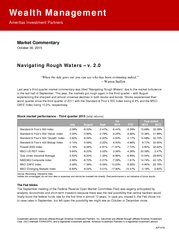Description
Who Is a
Good Candidate?
A Cash Balance plan would be appealing to:
• Owners or partners who are contributing the maximum to their current defined
contribution plan
• Companies with a demonstrated consistent profit pattern that are comfortable
with the idea of required contributions and can bear the investment risk
• Owners or partners age 45 or older that want to accelerate their retirement savings
• Companies with a new comparability profit sharing plan
• Owners wanting to transfer their ownership interest in the next 5-10 years
Find Out More
Our representatives can answer your questions and show you how a Cash Balance
plan can work for you. For more information, call 800-923-2732.
This information is provided by Ameritas®, which is a marketing name for subsidiaries of
Ameritas Mutual Holding Company, including, but not limited to: Ameritas Life Insurance
Corp., Ameritas Life Insurance Corp. of New York and Ameritas Investment Corp.,
member FINRA/SIPC. Ameritas Life Insurance Corp.
is not licensed in New York. Each company is solely responsible for its own financial condition and contractual obligations. For more information about Ameritas®, visit ameritas.com. Ameritas Life Insurance Corp. of New York Retirement Plans Division 1350 Broadway, Suite 2201 New York, NY 10018 800-923-2732 ameritas.com The Ameritas Retirement Advantage Series refers to a group variable annuity contract issued by Ameritas Life Insurance Corp.
of New York (Form FA 64349). Ameritas® and the bison design are registered service marks of Ameritas Life Insurance Corp. Fulfilling life® is a registered service mark of affiliate Ameritas Holding Company. © 2015 Ameritas Mutual Holding Company For Financial Professional and Plan Sponsor Use Only. .
is not licensed in New York. Each company is solely responsible for its own financial condition and contractual obligations. For more information about Ameritas®, visit ameritas.com. Ameritas Life Insurance Corp. of New York Retirement Plans Division 1350 Broadway, Suite 2201 New York, NY 10018 800-923-2732 ameritas.com The Ameritas Retirement Advantage Series refers to a group variable annuity contract issued by Ameritas Life Insurance Corp.
of New York (Form FA 64349). Ameritas® and the bison design are registered service marks of Ameritas Life Insurance Corp. Fulfilling life® is a registered service mark of affiliate Ameritas Holding Company. © 2015 Ameritas Mutual Holding Company For Financial Professional and Plan Sponsor Use Only. .
Personal Finance Presentations
+
Personal Finance Sub Categories
Ameritas Life Insurance









